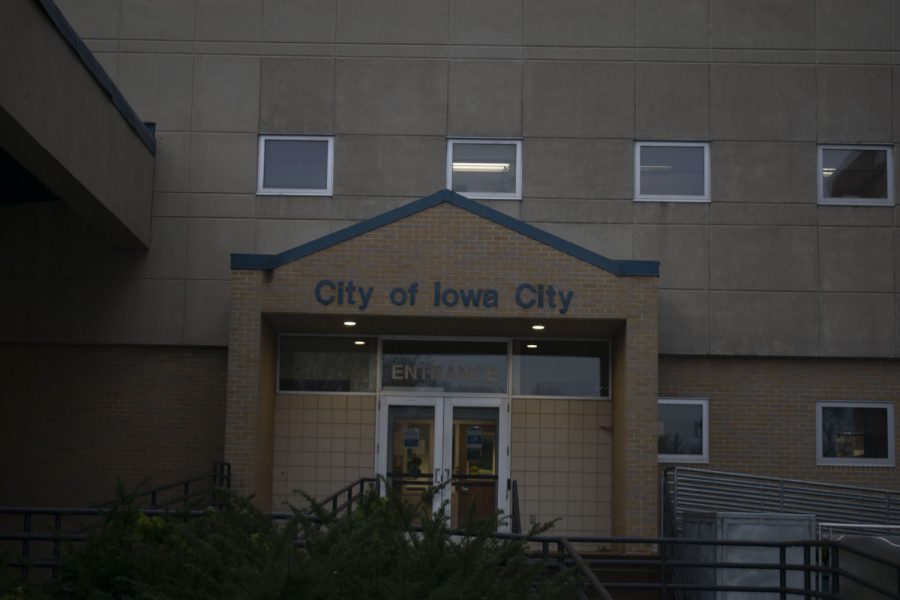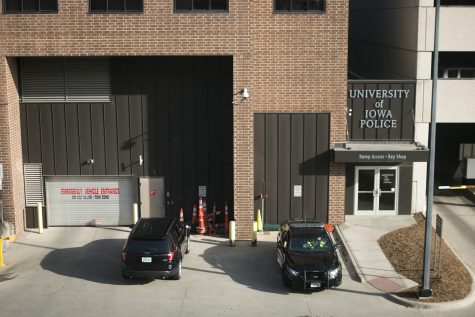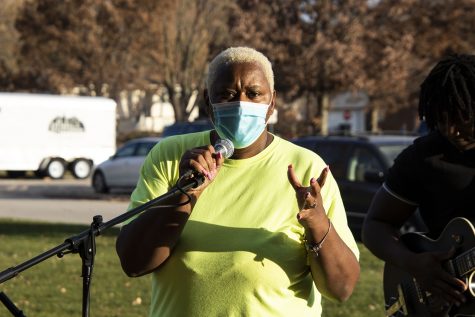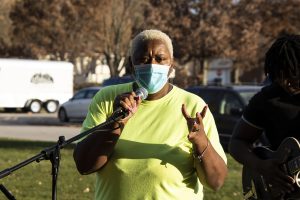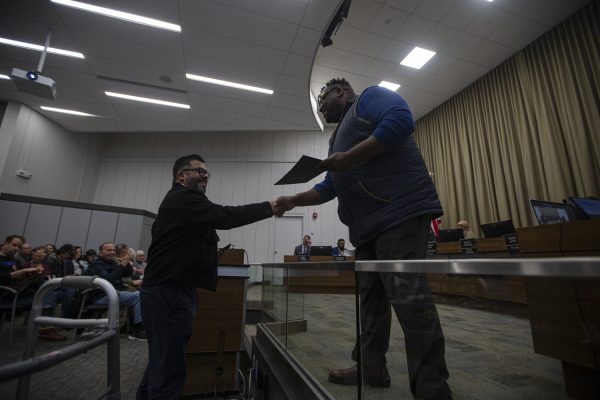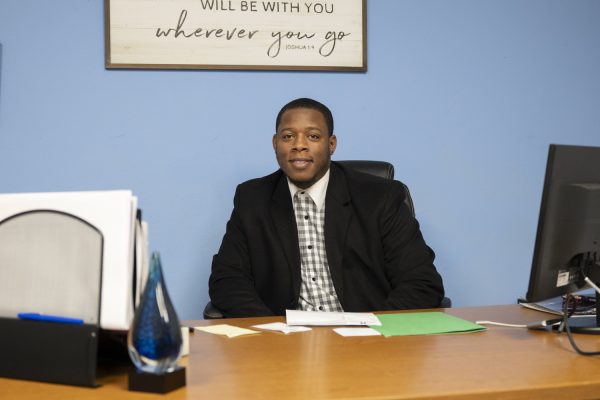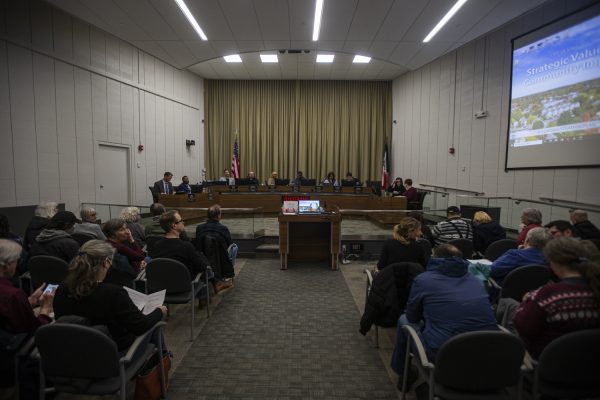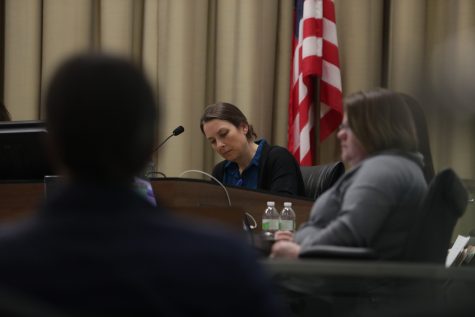Facilitator, commissioner resign from Iowa City’s Truth and Reconciliation Commission
After Royceann Porter resigned her chair position last week, newly approved facilitator Jesse Case and commissioner Tony Currin sent letters of resignation to the City Council Friday and Sunday, respectively.
City of Iowa City Town Hall is seen on Tuesday, October 20, 2020.
March 8, 2021
Following a tumultuous week and change in leadership on Iowa City’s Truth and Reconciliation commission, commissioner Anthony Currin and newly approved commission facilitator Jesse Case resigned this weekend.
Case, who was approved by the commission 8-1 to be the commission’s facilitator at its March 1 meeting, sent his letter of resignation to the Iowa City City Council on Friday.
He wrote that he could not “in good conscience sign the contract to accept the position” and did not think he was the right person for the project.
“I’m sure the leadership of the Iowa City Council will continue to be actively involved every step of the way, and I urge them to appoint a council person to participate in future meetings,” Case wrote in the letter. “As stewards of the $1,000,000.00 allocation set aside to address issues of systemic racism in our community, I wish them luck in their endeavors.”
Currin, who is a local labor leader and the Affirmative Action Chair of the Johnson County Democrats, penned his letter of resignation to the Iowa City City Council on Sunday, citing the lack of structure as the reason for his departure.
As previously reported by The Daily Iowan, Johnson County Supervisor Royceann Porter resigned her position as chairperson of the Truth and Reconciliation on March 4 after still unspecified allegations were brought against her.
Commissioner Mohamed Traore, who brought the allegations to the commission and called for a no-confidence vote against Porter, was elected chair in a 6-3 vote on March 4, as well.
Currin wrote that his feelings on the commission were made clear during the March 4 meeting, when Porter resigned and new leadership was elected despite his assumption that Vice Chair T’Shailyn Harrington would elevate to chair.
He wrote that he was told that since there were no bylaws and no Robert’s Rules of Order at play, the commissioners were allowed to do what they wanted. Stepping down, he wrote, was a matter of integrity.
“We, as a governing body, had been designed WITHOUT rules for governance,” Currin wrote. “This flaw, albeit, a mere oversight, shall be detrimental, the longer the Commission is permitted to operate.”
Currin has known Porter for years, he wrote, and thinks she has done an exemplary job in every role she’s undertaken. The problem presented was never about Porter’s leadership, he wrote, but rather the commission’s “inherent lack of reins.”
He added that he believes the work is too important and that he has respect for City Councilors Laura Bergus and Janice Weiner for helping to establish the commission.
“I can NOT stress the urgency concerning the matter of PAUSING this Commission to refit it with tools for oversight and better self-governance,” Currin wrote.
Since the establishment of the Truth and Reconciliation Commission, there have been struggles between older and younger commissioners, including how to handle change in policing and language regarding systemic racism and white privilege.
As previously reported by the DI, Currin and Commissioner Raneem Hamad, who is a leader of activist group the Iowa Freedom Riders, have differed on their perspectives for the future of Iowa City policing.
Hamad has said she supports systemic change as opposed to law enforcement reform, something she has brought up during the city council’s public comment and Truth and Reconciliation meetings.
Hamad said in an interview with the DI on Dec. 2 that the Iowa Freedom Riders tried to include language in the resolution that would ensure the commission would produce some level of systemic change, but that language ultimately wasn’t included in the resolution.
“We really have to be honest about the work that we’re setting out to do and if that’s not our goal, then why are we pursuing this endeavor?” Hamad said. “I’m still hopeful that we’ll be able to get a lot of work done and be able to push for its own types of systematic changes.”



